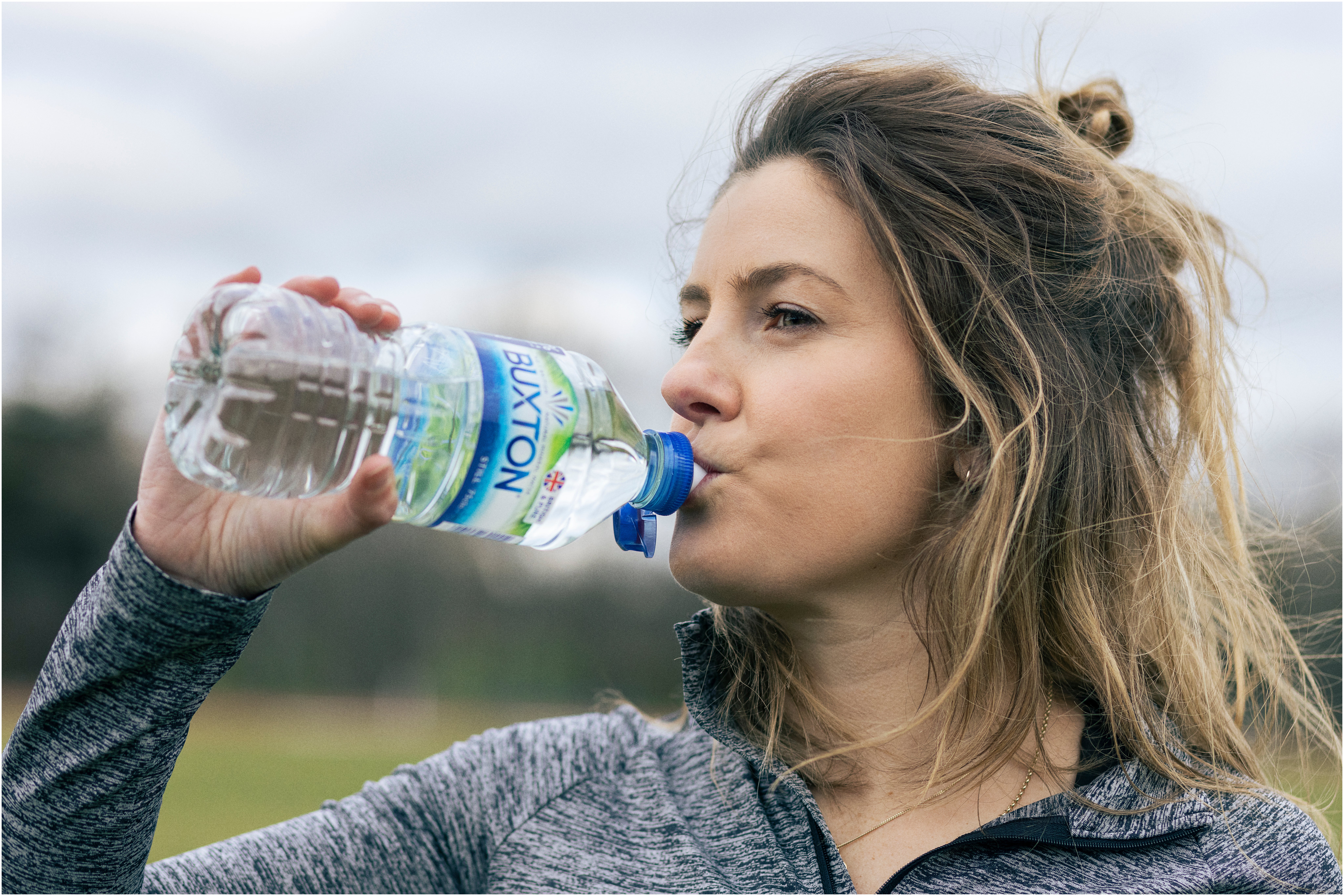“Running has always been a constant for me – it helps me manage stress, have headspace and time out”
When a skiing injury left ultra marathon-runner Eva unable to train, her health – physical and mental – took a dip. Here she shares how she was able to fight back, and why she feels lucky to be running again

In 2023, Buxton is proud to partner with Mind to support the sweat and tears of 15 Rise Up Runners. 15 real people, each facing their own physical and mental struggles, who are bravely taking on the ultimate test of resilience: The London Marathon. Their road to the race will be part of Buxton and Mind’s wider mission to promote better physical and mental wellbeing across the nation, through exercise and hydration.
Ultramarathon-runner Eva was stopped in her tracks after tearing her ACL while skiing in 2022. With intensive rehab came a period of poor mental health, but seeking out help and determination to get back to what she loves has led Eva to train for this year’s London Marathon, and she’s now feeling stronger than ever.
Tell us about your relationship with running and your recent injury?
Running has always been a constant for me to manage stress, have headspace and time out for myself. I was on a ski trip in 2022 when I tore my ACL (one of the ligaments in your knee). It’s one of the worst sporting injuries you can get in terms of the recovery time and surgery. You have to completely relearn how to use your knee and leg again. Sport is my passion and to have that taken away overnight was a really hard thing for me.
What was your rehab and mental health experience like?
It’s a really gruelling, isolating rehab period. You have the surgery and then the reality hits that you’ve got a very long road to recovery. I got a blood clot two weeks after the surgery which wasn’t part of the plan either. It was probably around that point that I started to get depressed. There were three periods of depression over the past year. Plus, I had PTSD from the accident itself, so I was having flashbacks and felt very guilty.
How did you approach the physical challenge and how did that impact you mentally?
I spent three hours a day doing rehab after working long hours for my day job, which meant that I was recovering very quickly, physically, but then the mental aspect caught up. I was so isolated and I’d get very anxious about social situations. It was kind of a perfect storm as I’m a perfectionist and a people-pleaser, and that combined with the rehab just blew up into a whole new level of anxiety.
What motivated you to keep going when times were tough?
My motto was: just keep turning up. Change doesn’t happen quickly but if you keep turning up then at least you’re putting something into it and things will happen gradually. I just wanted to get back to doing something I love.
How did you find the mental recovery?
I think because I’ve focused so much on the physical recovery, the mental recovery actually took much longer. I guess you only really get taught about how to improve the physical when you’re rehabbing an injury. You don’t really know what to do mentally. By September 2022, I was completely back to normal physically, but I was having really bad panic attacks. I spoke with the doctor again and arranged some therapy. I’ve never really spoken about things before so it was all very new to me.
And what lessons have you learned from this experience?
I try to be a lot more honest with people. Some don’t quite get it. Unless you’ve been through depression it’s really hard to understand how it feels. I think we all need to be better at talking about how we actually are. I was definitely a lot worse than I ever communicated to anybody.
How has your attitude changed towards running and how has this impacted your training for the marathon?
It changed my perspective. I felt so lucky to be able to run now. It very much gave me a new perspective on looking after your whole self, holistically. My London marathon training as a whole is all about mental and physical well being. By going out for runs and exercising you release endorphins and that contributes to a better mental state.
And why the London Marathon?
It’s just the biggest and the best isn’t it! You’re surrounded by the vast majority of runners who are raising money for charities and the crowds are amazing. Plus, I live in London so it’s great to be running around these streets.
What do you think crossing the finish line will feel like?
I hope it will just be happiness. The closing of a chapter, I would say. I’m so much stronger than I was pre injury and this is proof that you can come back from a real low and turn it into something positive.
What are the mental health lessons you’ve learned from this experience?
It’s that things will pass. It will get better. When you’re in a real low you just can’t see a way out but it does get better. It’s the simplest phrase but it is true. Little steps add up to big things.
If you’ve been affected by any issues raised in this article, visit mind.org.uk for information and support
Register for the chance to WIN a 2024 TCS London Marathon place



